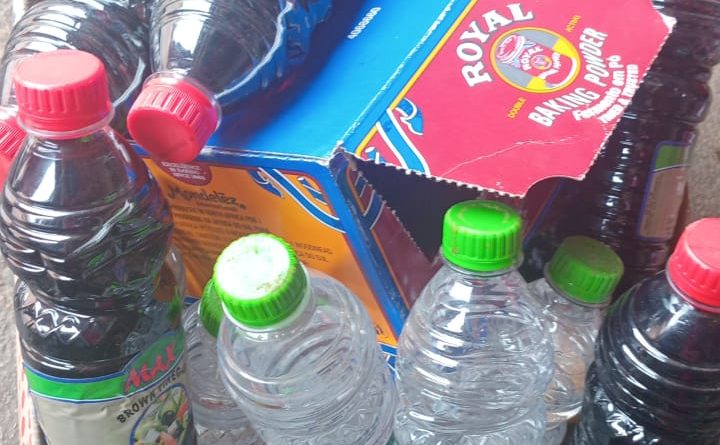DUP and community forums lead charge against expired goods
MOGORWANE
Following the surge of food poisoning perpetuated on children after allegedly consuming food purchased at foreign owned spaza shops, the Democratic Union Party (DUP) has taken an initiative to conduct inspections at all local tuck shops in Sekhukhune.
The inspections commenced on Tuesday 12 November 2024 at Mogorwane Village in Makhuduthamaga Local Municipality (MLM).
UDP President, Tonic Manchidi, said the inspections are conducted by the political party at foreign owned shops, which is joint campaign with community based forums.
“The Democratic Union Party is conducting inspection of local shops around Makhuduthamaga Local Municipality in association with allied community forums to determine compliance with the Limpopo Business Registration Act (LIBRA),” he said.
Manchidi said during the inspections, the team is aiming to remove expired and counterfeit food where none complying shops will be closed immediately and continue to be monitored.
“During the first day of inspection, our team managed to remove products worth about R15 000-00 in just two shops,” he said.
Manchidi said they allied with community based forums in all four local municipalities in Sekhukhune District.
“We have drafted a time table with all community based forums in order to visit and cover the entire Sekhukhune Region,” he said.
Last month, a total of 56 learners from Thokgwaneng Primary School in Ga-Mphahlele Village were admitted and treated for food poisoning at Lebowakgomo Hospital.
In its commitment to ensuring the health and safety of children, the Limpopo Executive Council (EXCO), convened an urgent meeting to implement a series of urgent measures, aimed at tackling the food poisoning crisis effectively.
Key recommendations from the meeting included establishment of a Joint Operating Committee (JOC), which is a coordination body formed under the Office of the Premier, set to bring together all relevant stakeholders including the Departments of Co-Operative Governance, Human Settlements and Traditional Affairs (COGHSTA), Department of Education, Department of Health, Limpopo Economic Development, Environment and Tourism (LEDEDT) and Social Development, to devise a unified strategy in response to this matter.
The meeting resolved that all food vendors serving schools will be required to maintain verifiable documentation demonstrating the origins of their products. This includes receipts and invoices detailing suppliers, purchase dates and product descriptions. This measure will enable authorities to trace product origins and hold suppliers accountable for food safety.
The meeting agreed on the ban on unsafe snacks, which has been imposed on the sale of snacks from brands identified to contain foreign objects or lacking expiry dates.
The EXCO resolved that all day-care centres, including drop-in centres and old-age facilities, will be required to develop or review their food safety protocols to ensure compliance with health standards.
The recommendations will extend to all government facilities that sell food within their premises or within a prescribed distance from their entrances.
Furthermore, the EXCO will prioritise unannounced inspections or raids of food warehouses and vendors to ensure compliance with health regulations and will engage with LEDET business teams to support local mayors in this initiative.
“We reaffirm our commitment to the health and well-being of our children and will continue to work collaboratively to prevent further incidents of food poisoning in our schools. The safety of our learners is non-negotiable and we are dedicated to implementing these measures swiftly and effectively,” said Limpopo Premier, Dr Phophi Ramathuba.




